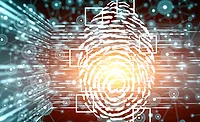Majority are Naïve to Cybersecurity Risks and Uninformed About Online Safety

Blumberg Capital released findings that reveal 60 percent of Americans believe they have never been a victim of cyber hacking or are unaware if they have. In fact, statistics reveal nearly the opposite is true. Every day, more than a million people become a victim of cybercrime. In fact, in the U.S. alone, $15 billion was stolen from 13.1 million American consumers in 2015, prompting the question of why are Americans so overconfident about their cybersecurity knowledge?
A large majority of Americans rate their knowledge of cybersecurity equal to or higher than the likes of Donald Trump (63 percent), Hillary Clinton (62 percent), their employer's IT departments (57 percent), former FBI director James Comey (44 percent) and former CIA director John Brennan (42 percent). Yet nearly half (45 percent) of people admitted to not being able to recognize a cyber crime unless contacted by a vendor or law enforcement authorities. The Blumberg Capital 2017 State of Cybersecurity survey, conducted in association with Researchscape, reveals the overconfidence and disconnect between American consumers' cybersecurity knowledge and concerns with reality.
"Consumers vastly underestimate cybersecurity threats and don't know how to identify, respond or protect themselves from future attacks," said David Blumberg, founder and managing partner of Blumberg Capital. "Naiveté and arrogance are a really dangerous combination. The cybersecurity landscape is complex and ever-evolving. Bad actors are constantly finding new ways to bypass security measures to infiltrate confidential systems and steal information or sabotage infrastructure. Even experts can miscalculate how to mitigate risks and existing security solutions are no longer enough, especially in areas such as IoT or cloud security. At Blumberg Capital, we support companies at the forefront of innovation in cybersecurity. We partner with innovative startups creating new ways to minimize cybersecurity threats and protect personal, business and government information."
Mother Knows Best, Unless it's Cybersecurity
The national survey asked American adults about cybersecurity and their perception of the biggest cybersecurity issues facing consumers, businesses and the United States government. The survey found that Americans believe their cybersecurity knowledge to be superior or equal to American leaders and those with specialized training. Eighty-two percent of those surveyed believe they know more about cybersecurity then their mothers, but the survey did not ask about appetite for risk. The majority of people don't believe they've been hacked; although data shows otherwise, and 74 percent believe that a simple password change is ample protection. Additionally, the survey revealed:
- About half of respondents don't believe they have ever been a victim of a cyber-attack (48 percent), while a quarter thought it was possible they had been (24 percent).
- Baby Boomers are more likely to believe they have never been a victim (54 percent), while Millennials are more suspicious that they may have been comprised (32 percent).
- The most common actions take in response to a cyber-attack were to change a password (74 percent) and to contact the bank (46 percent).
- Forty-five percent of people said they would not know if they had been hacked or would only know if contacted by a vendor or legal authority. Only 13 percent expressed complete confidence in their own ability to recognize if they have been hacked.
- Less than half (39 percent) of Americans are concerned about potential hacks of their laptop computers and 38 percent are concerned about potential hacks of their IoT devices such as smart appliances and smart phones.
Biggest Cybersecurity Concerns
Respondents are concerned about a variety of cybersecurity threats to their personal information and to U.S. businesses. Americans are also very concerned about espionage against the U.S. Government (72 percent), but are less concerned about hacking for a "cause," presumably one they favor.
- Fifty-one percent of those surveyed cite identity theft as the biggest cybersecurity issue facing consumers.
- Forty-four percent listed their social security number as the most important information to keep safe, followed by bank account passwords (27 percent), credit card numbers (22 percent) and personal email passwords (12 percent).
- Consumers are least concerned about protecting work email passwords (10 percent), online dating passwords (9 percent) and nude or racy photos (7 percent).
- Fifty-five percent believe the most important cybersecurity problem for businesses is securing customer information. Thirty-seven percent listed securing employee information as top priority with 17 percent listing data being encrypted by hackers and held for ransom.
- Overwhelmingly, 72 percent rank foreign espionage threats as the biggest cybersecurity problem facing the U.S. Government. Twenty-three percent believe the top government concern is securing confidential intelligence reports and 17 percent feel the top government concern is securing citizen records such as IRS filings. Only one in 10 believe interfering with elections through propaganda is a serious concern.
Sony Employee Hack or Locky Ransomware ring a bell? Apparently not-- Despite those famous cybersecurity attacks, Americans still trust employers and doctors most to protect their personal data. Most Americans don't know whom to trust with their online data. Those surveyed cited their current employers as being most trustworthy (61 percent), followed by their doctors (52 percent) and their banks (45 percent) despite infamous hacks such as the Sony breach and Locky Ransomware attacks on hospitals. When it comes to transferring sensitive information, most Americans reveal a strong distrust in technology and believe that in-person hand delivery is the best method, despite impracticalities.
- Eighty-four percent of Americans find social networks to be not all trustworthy, slightly trustworthy or only moderately trustworthy.
- Eighty-eight percent of Americans list dating sites as not all trustworthy, slightly trustworthy or only moderately trustworthy.
- Participants believe hand delivery is the safest way to send confidential information and secure its safety, followed by commercially encrypted email.
- On the contrary, only one percent of Americans ranked courier as the safest way to deliver information, ranking it only safer than a fax machine.
America Online: e-Commerce Risk Prevention Habits and Online Marketplaces
Ninety-Five percent of adults expressed at least some concern about their personal information being hacked on e-Commerce sites with eleven percent being very concerned. Gen X-ers are the most concerned with 25 percent reporting being "very concerned" compared to 17 percent of all other respondents.
- Fifty-four percent of Americans who shop online trust online marketplaces, such as eBay and Amazon, with their financial information
- Only 33 percent of consumers trust established retail brands such as Walmart, Gap, Target, and Macy's
- Thirty-three percent of Americans believe they are more secure online if they don't save their credit card information. Others choose to only use PayPal or other payment services they trust (30 percent).
Looking for a reprint of this article?
From high-res PDFs to custom plaques, order your copy today!







